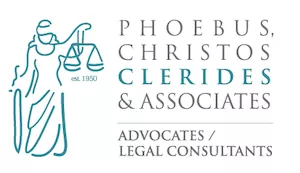- within Transport topic(s)
- within Transport, Law Department Performance and Employment and HR topic(s)
While aviation remains one of the safest forms of transport, passengers may nonetheless suffer injuries during flight. The applicable legal regime for such incidents is primarily the Montreal Convention of 1999, which harmonises carrier liability rules internationally. The Convention constitutes part of Cyprus domestic law since its ratification through the Law on the Ratification of the Montreal Convention for the Unification of Certain Rules for International Carriage by Air of 2002, Law 3(III)/2002. In addition, EU Regulations ensure uniform application across all Member States
Definition and Scope of 'Accident':
Article 17 of the Montreal Convention establishes liability for death or bodily injury if caused by an "accident" during the flight, embarkation, or disembarkation. Courts, including in Air France v Saks [1985] 470 US 399, define "accident" as an unexpected, unusual, and external event.
Examples include:
- Objects falling from overhead compartments,
- Injuries during severe turbulence,
- Slips caused by spills in the cabin,
By contrast, medical events arising solely from a passenger's internal condition (such as a heart attack) are generally excluded unless triggered by an external event.
The Liability Regime:
The Montreal Convention imposes a two-tier liability system:
- Strict liability up to 128,821 Special Drawing Rights (SDRs) (approx. €160,000). Within this limit, the carrier shall not be able to exclude or limit its liability.
- Unlimited liability beyond that threshold, unless the airline can demonstrate that it took all necessary measures to avoid the damage or that the injury was caused solely by a third party.
It is important to note that "bodily injury" refers to physical harm. Claims based purely on emotional distress are not compensable unless directly connected to a physical injury.
Remedies and Damages:
An injured passenger may recover:
- Medical expenses (past and future),
- Loss of earnings and reduced earning capacity,
- Compensation for pain, suffering, and lasting impairment,
- Ancillary costs such as rehabilitation or care.
Cypriot courts, applying the Convention and EU law, would calculate damages according to established principles of tort law, but always within the framework of the Convention's liability thresholds.
Insurance:
Under Regulation (EC) No. 785/2004, all EU-based airlines (and foreign carriers operating into the EU) must maintain sufficient liability insurance to ensure compensation is actually available to injured passengers.
Procedural Requirements:
Article 35 of the Convention sets a two-year limitation period from the date the aircraft arrived, or should have arrived. While the Convention does not mandate a specific notice procedure for personal injury, best practice dictates:
- Immediate reporting of the incident to cabin crew,
- Obtaining medical attention and records,
- Preserving travel documents, photographs, and witness details,
- Submitting a written claim to the airline as soon as possible.
Delay in taking these steps may complicate or weaken the claim.
Jurisdiction:
Passengers may bring proceedings in one of five fora:
- the carrier's domicile (if a natural person - particularly rare in practice)
- the carrier's principal place of business (if a legal person)
- the place of contracting,
- the place of destination, or
- the passenger's place of residence, provided the carrier operates there (only in respect of damage resulting from the death or injury of a passenger)
Conclusion:
For passengers injured on board an aircraft to or from Cyprus, the Montreal Convention provides a robust and harmonised system of protection. The regime balances consumer rights and carrier obligations through strict liability, while setting clear thresholds and limits. Ultimately, success in pursuing such a claim depends on acting promptly, preserving evidence, and seeking appropriate legal advice.
The content of this article is intended to provide a general guide to the subject matter. Specialist advice should be sought about your specific circumstances.


